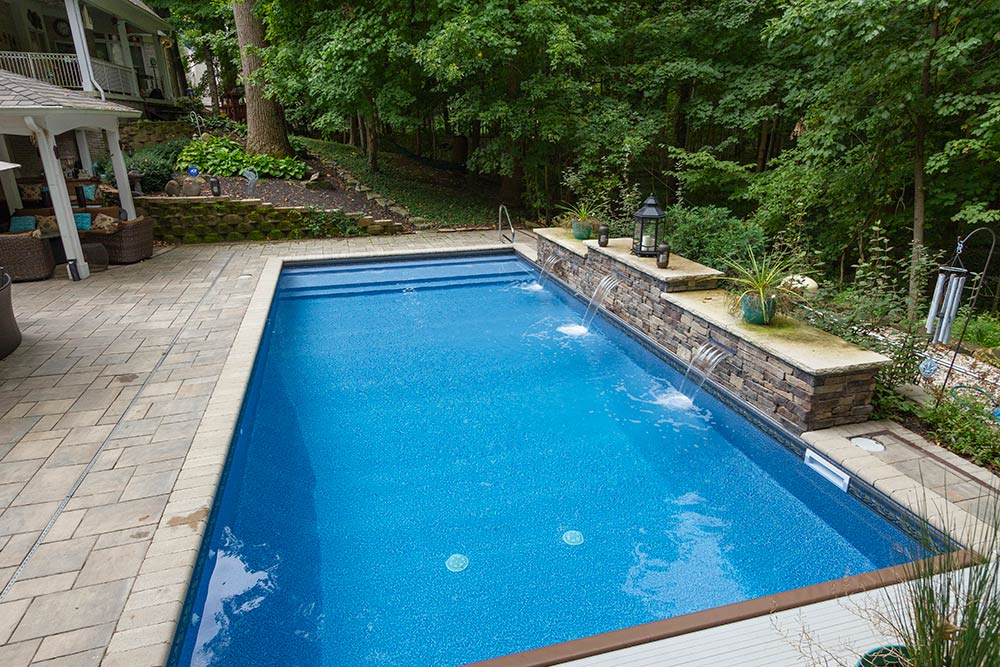Not Water Wasters
The data has existed for years. Open bodies of water consume 50% less water than lawn and landscape areas of the same surface area. In other words, lawns use twice the water of swimming pools. Water loss in pools is due primarily to evaporation. Independent studies have shown that if the pool is equipped with a solid cover, evaporative loss is reduced by 95%.
Also, when a pool is installed, the project typically includes surrounding deck areas, outdoor kitchens, dining areas and other hardscape features that replace lawns and landscaping. While you may have a 500-square-foot pool, the property may also have four or five times that much surface area covered in hardscape, all of which consumes zero water. That means, in most cases, pool installations dramatically reduce the amount of water used in a backyard.
Pools also act as small reservoirs, conserving water for possible emergencies resulting from water shortages. The vast majority of water contained in a pool is, quite literally, conserved and readily available.
Furthermore, in the growing number of areas impacted by the ever-increasing frequency and severity of wildfires, they can also be used to fight those fires when equipped to do so and in fact, have saved homes from complete destruction.
In that sense, it is fair and verifiable to argue that pools are water savers that benefit conservation efforts. It’s basic commonsense: Pools reduce the impact of drought rather than aggravating it.


